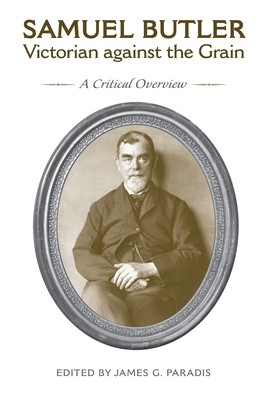
- We will send in 10–14 business days.
- Author: James G Paradis
- Publisher: University of Toronto Press
- ISBN-10: 1487549350
- ISBN-13: 9781487549350
- Format: 15.2 x 22.9 x 2.5 cm, softcover
- Language: English
- SAVE -10% with code: EXTRA
Reviews
Description
Samuel Butler (1835-1902), Victorian satirist, critic, and visual artist, possessed one of the most original and inquiring imaginations of his age. The author of two satires, Erewhon (1872) and The Way of All Flesh (1903), Butler's intellectually adventurous explorations along the cultural frontiers of his time appeared in volume after eccentric volume. Author of four works on evolution, he was one of the most prolific evolutionary speculators of his time. He was an innovative travel writer and art historian who used the creative insights of his own painting, photography, and local knowledge to invent, in works like Alps and Sanctuaries (1881), a vibrant Italian culture that contrasted with the spiritually frigid experience of his High Church upbringing.
Despite his range and achievement, there remains surprisingly little contemporary analytical commentary on Butler's work. Samuel Butler, Victorian against the Grain is an interdisciplinary collection of essays that provides a critical overview of Butler's career, one which places his multifaceted body of work within the cultural framework of the Victorian age. The essays, taken together, discuss the formation of Victorian England's ultimate polymath, an artistic and intellectual ventriloquist who assumed an extraordinary range of roles - as satirist, novelist, evolutionist, natural theologian, travel writer, art historian, biographer, classicist, painter, and photographer.
EXTRA 10 % discount with code: EXTRA
The promotion ends in 20d.06:48:15
The discount code is valid when purchasing from 10 €. Discounts do not stack.
- Author: James G Paradis
- Publisher: University of Toronto Press
- ISBN-10: 1487549350
- ISBN-13: 9781487549350
- Format: 15.2 x 22.9 x 2.5 cm, softcover
- Language: English English
Samuel Butler (1835-1902), Victorian satirist, critic, and visual artist, possessed one of the most original and inquiring imaginations of his age. The author of two satires, Erewhon (1872) and The Way of All Flesh (1903), Butler's intellectually adventurous explorations along the cultural frontiers of his time appeared in volume after eccentric volume. Author of four works on evolution, he was one of the most prolific evolutionary speculators of his time. He was an innovative travel writer and art historian who used the creative insights of his own painting, photography, and local knowledge to invent, in works like Alps and Sanctuaries (1881), a vibrant Italian culture that contrasted with the spiritually frigid experience of his High Church upbringing.
Despite his range and achievement, there remains surprisingly little contemporary analytical commentary on Butler's work. Samuel Butler, Victorian against the Grain is an interdisciplinary collection of essays that provides a critical overview of Butler's career, one which places his multifaceted body of work within the cultural framework of the Victorian age. The essays, taken together, discuss the formation of Victorian England's ultimate polymath, an artistic and intellectual ventriloquist who assumed an extraordinary range of roles - as satirist, novelist, evolutionist, natural theologian, travel writer, art historian, biographer, classicist, painter, and photographer.


Reviews